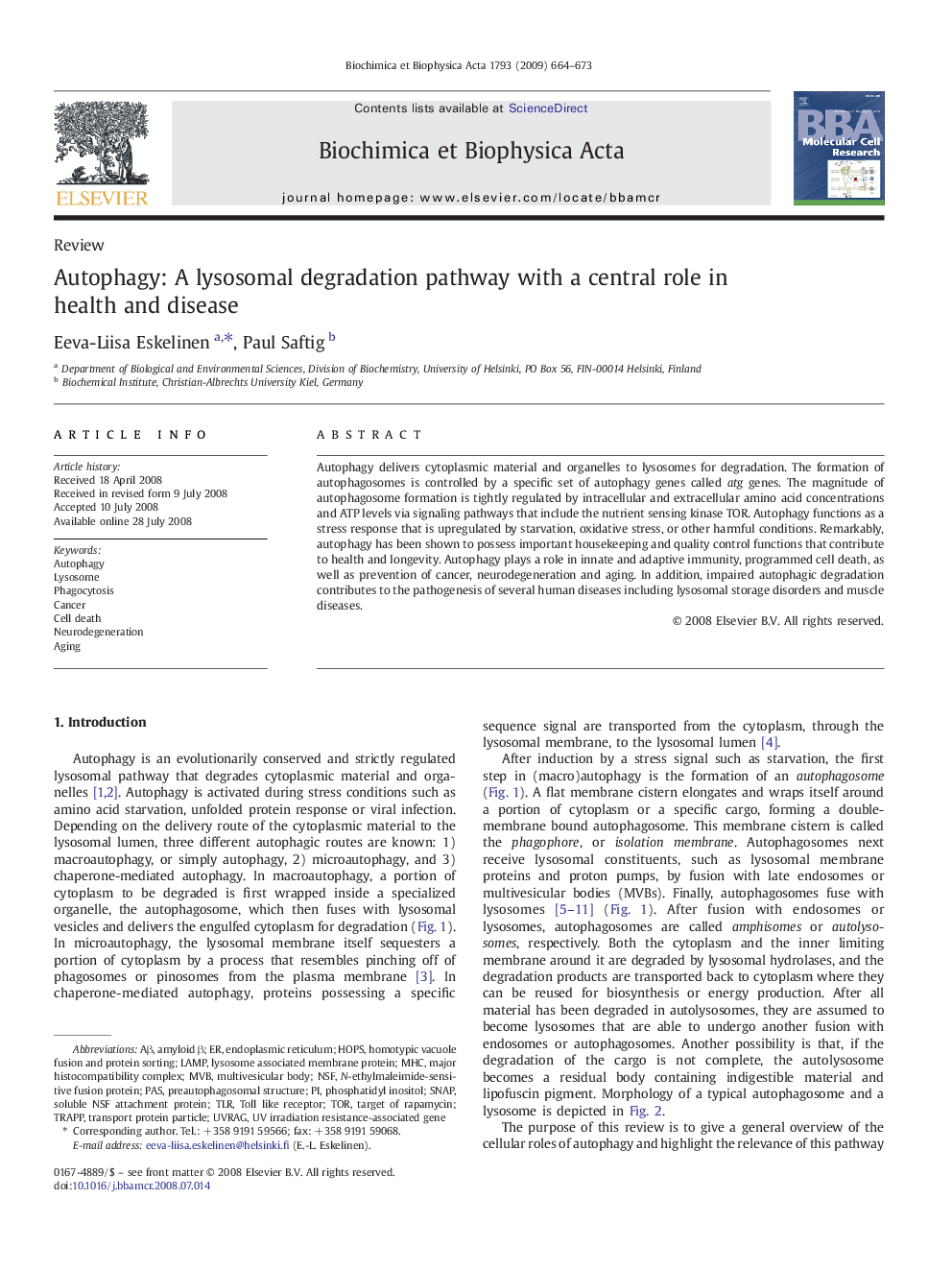| Article ID | Journal | Published Year | Pages | File Type |
|---|---|---|---|---|
| 1951116 | Biochimica et Biophysica Acta (BBA) - Molecular Cell Research | 2009 | 10 Pages |
Abstract
Autophagy delivers cytoplasmic material and organelles to lysosomes for degradation. The formation of autophagosomes is controlled by a specific set of autophagy genes called atg genes. The magnitude of autophagosome formation is tightly regulated by intracellular and extracellular amino acid concentrations and ATP levels via signaling pathways that include the nutrient sensing kinase TOR. Autophagy functions as a stress response that is upregulated by starvation, oxidative stress, or other harmful conditions. Remarkably, autophagy has been shown to possess important housekeeping and quality control functions that contribute to health and longevity. Autophagy plays a role in innate and adaptive immunity, programmed cell death, as well as prevention of cancer, neurodegeneration and aging. In addition, impaired autophagic degradation contributes to the pathogenesis of several human diseases including lysosomal storage disorders and muscle diseases.
Keywords
UVRAGMVBTLRNSFAβTRAPPTORamyloid βAutophagymultivesicular bodytoll like receptorNeurodegenerationAgingCancerendoplasmic reticulumSNAPPhagocytosisPhosphatidyl inositolLAMPLysosomemajor histocompatibility complexMHCCell deathPAStarget of rapamycinHopssoluble NSF attachment proteintransport protein particleN-ethylmaleimide-sensitive fusion protein
Related Topics
Life Sciences
Biochemistry, Genetics and Molecular Biology
Biochemistry
Authors
Eeva-Liisa Eskelinen, Paul Saftig,
